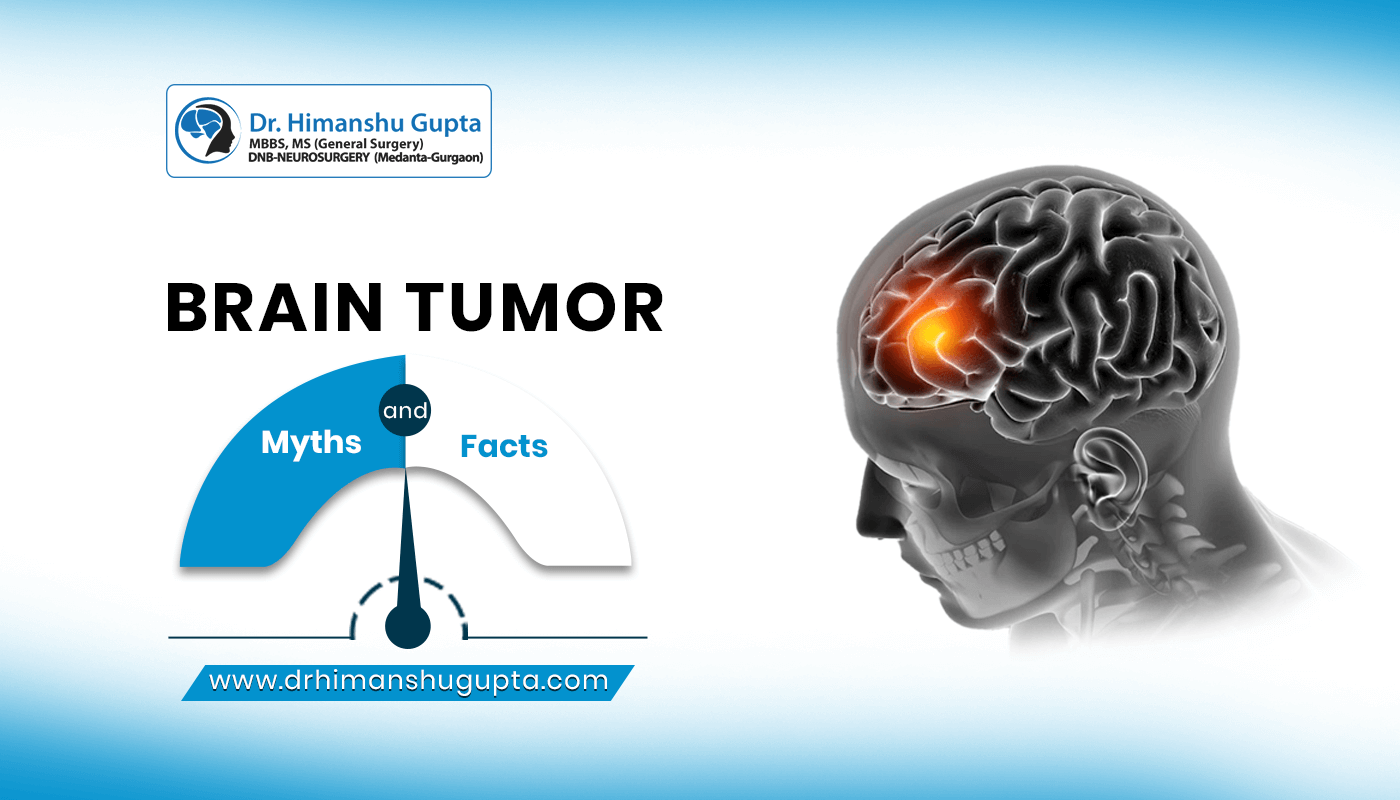Brain Tumor Myths And Facts!
Brain Tumor Myths and Facts: A brain tumor can be a scary diagnosis, as it can be associated with serious or even fatal consequences. There are many myths and misconceptions surrounding brain tumors, which can make diagnosis and treatment even more confusing and frightening. It is important to become informed about the truth behind brain tumor myths and facts. This article looks at common myths, explains the truth behind them, and offers evidence-based facts to help guide understanding and decision-making. Keep on reading till the last to know about it!
Brain Tumor Myths and Facts:
1. Myth: A tumor in the brain, means brain cancer
Fact: Tumors can be either cancerous or benign, and a tumor in the brain does not automatically mean a diagnosis of cancer. In order for a tumor to be classified as cancerous, there must be evidence of malignant, rapidly growing cells. A tumor in the brain may be benign, meaning it will not spread, or it may be malignant, meaning it is cancer and will spread. A doctor will be able to diagnose this after examining the tumor.
2. Myth: All brain tumor patients have the same signs and symptoms
Fact: Brain tumor patients have a wide range of signs and symptoms, depending on the size and location of the tumor, as well as the individual's age and overall health. Common potential symptoms include headache, nausea, balance and coordination issues, vision and hearing changes, changes in personality and behavior, confusion, seizures, and fatigue.
3. Myth: Only Adults get a brain tumor.
Fact: Brain tumors can occur in both adults and children. In fact, a report states that brain and central nervous system tumors are the most common type of solid tumor in children under the age of 20. As such, it is important for people of all ages to recognize the signs and symptoms of brain tumors and to consult with a doctor if any symptoms are present.
4. Myth: Usage of mobile phones can lead to a brain tumor
Fact: There is no conclusive scientific evidence that proves a link between the usage of mobile phones and brain tumors. Some studies have suggested the potential for a low level of increased risk, but the overall evidence does not support a clear causal link.
5. Myth: Headaches and blurred vision indicate a brain tumor
Fact: Headaches and blurry vision are symptoms that may be due to a variety of conditions and are not necessarily indicative of brain tumors. Brain tumors can cause a variety of symptoms, including headaches, blurred vision, seizures, nausea, confusion, and difficulty speaking. However, it is important to note that these symptoms can also be due to a variety of other conditions. A doctor should be consulted if any of these symptoms appear in order to diagnose the cause.
6. Myth: A brain tumor runs in the family
Fact: While genetic tendencies may increase the risk of developing a brain tumor, the presence of a family history of the disease does not necessarily mean that the person has an increased risk of developing the same type of tumor.
7. Myth: If treated, brain tumors are not recurrent
Fact: While the treatment of brain tumors can improve the prognosis, they can still recur in some cases. Depending on the type of tumor, the treatment is usually a combination of surgery, radiation, and chemotherapy, but even if the tumor is removed it can still come back.
Reach Dr. Himanshu Gupta the best neurosurgeon in Jaipur for brain tumor surgery in Jaipur! Dr. Himanshu Gupta is one of the Best Nurosurgeon in Jaipur, India, and is renowned for his expertise in the diagnosis and treatment of brain tumors. He is a highly experienced specialist who provides personalized and compassionate care to his patients. He has been practicing neurology for years and has gained the trust of many patients through his excellent clinical outcomes and bedside manner.
FAQ: Brain Tumor Myths and Facts
1. What are the risk factors in link with developing a brain tumor?
Risk factors in link with brain tumor development include exposure to ionizing radiation, a family history of brain tumors, certain genetic disorders, and being exposed to certain viruses. This list is not exhaustive; it is important to consult a physician to identify any additional risk factors.
2. Is a brain tumor always cancerous?
Not all brain tumors are cancerous; there are both malignant and benign brain tumors. Malignant brain tumors are cancerous and can spread to other parts of the body; benign brain tumors generally do not spread.
3. How is a brain tumor diagnosed?
A brain tumor is usually diagnosable after a physical exam and imaging tests such as an MRI or CT scan. It is important for these tests to be completed to accurately identify the type of tumor present.
4. What treatments are available for a brain tumor?
Treatment options depend on the type and location of the tumor. Treatment options may include chemotherapy, radiation therapy, targeted therapy, and/or surgery. Different combinations of treatments may be in use to optimize outcomes and reduce side effects.
5. What is the prognosis of a brain tumor?
Prognosis depends on a variety of factors, including the type and location of the tumor as well as the patient’s overall health. It is important to consult a physician to determine the best treatment plan and obtain an accurate prognosis.
6. What are ways to manage the symptoms of a brain tumor?
Symptoms of a brain tumor may include headaches; seizures; balance, coordination and speech problems; vision problems; and fatigue. These symptoms are manageable through a combination of medication, lifestyle modifications, and supportive care. It is important to consult a physician to determine an individual management plan.




_1634735781.webp)
_1634735795.webp)